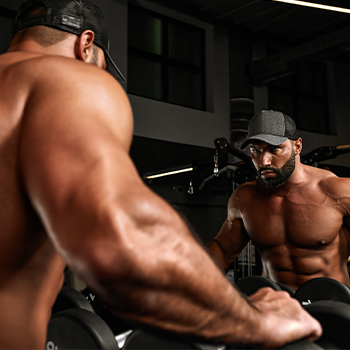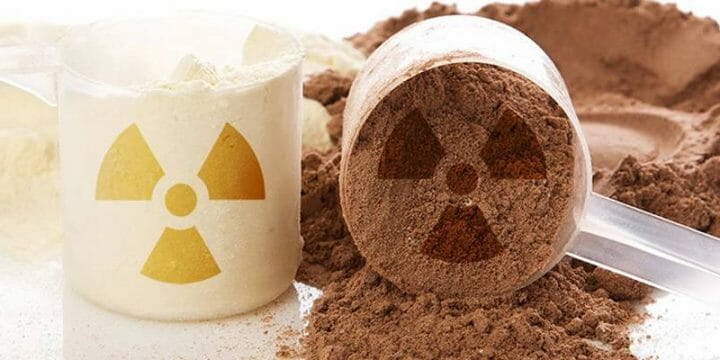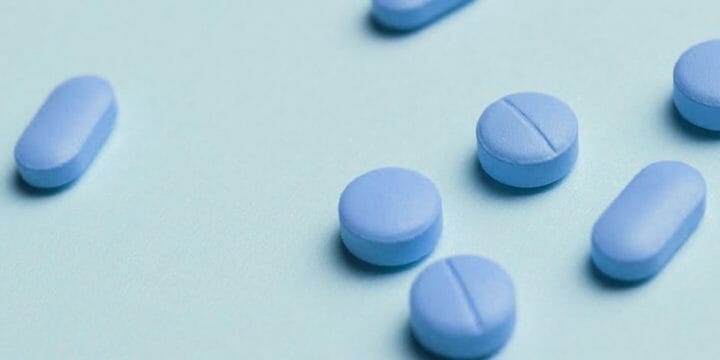One question I get a lot as a personal fitness trainer is what it will feel like during a workout session when my clients take pre-workout products.
Now, before you think it will be an Incredible Hulk-like effect where you develop superhuman strength and rip off your shirt, let me tell you that it’s a lot more subtle than that.
But to give you the most accurate idea of what to expect, we have researched many pre-workout supplements with our clients.
And that has given us a lot of data to highlight some things to be aware of.
Quick Summary
- Some of the common pre-workout feelings are jittery, itchy, tingling sensations, pumping muscles, and headaches.
- Decreasing dose intake and eliminating caffeine are some of the ways of limiting feelings attributed to pre-workouts.
- Research suggests that up to 400 mg of caffeine is the safe upper limit for adults, with many pre-workouts containing half this amount or more.
- We find that a moderate pre-workout dose can significantly enhance my focus and energy levels without adverse side effects.
5 Common Pre-Workout Feelings

Here are the five most common things you’ll notice when taking a pre-workout before a training session. Watch out for them 20 to 30 minutes after taking the supplement.
1. Jittery
Many of the best pre-workout supplements include caffeine for stimulation. The key is the caffeine content and your regular caffeine consumption.
Based on our own and UW Medicine's research, 400 mg is the recommended safe limit for caffeine intake [1]. But some pre-workouts will contain over 200 mg, and if you had a cup of coffee on the way to the gym, you could quickly end up with your nervous system and brain in jitter mode.
Some caffeine is good for your focus and motivation, but avoid getting jittery, as it won’t do you much good at the gym.
2. Itchy

B vitamins are a common ingredient in pre-workout formulas, especially B3.
Niacin, commonly found in pre-workouts, may enhance performance by releasing energy from carbohydrates and fats for muscle use[2].
The National Library of Medicine also mentions that there is also evidence that it can make your skin feel itchy [3].
It’s not the most pleasant feeling, and some people find it distracting when lifting weights.
But it can also indicate that your body has absorbed the pre-workout ingredients, and you’re ready to push a bit more.
3. Tingling Sensation
This is one of the more common effects of pre-workout supplements, which most people can live with. It’s mainly down to an amino acid called beta-alanine.
Research from the National Library of Medicine explains that your body produces it naturally, and when you get a boost from it, it may react by increasing the available energy for muscles to perform under high intensity [4]. But, your body may also respond to pre-workout with a tingling sensation in the hands and feet that can last for about an hour.
“Beta-alanine is one of carnosine's main ingredients. Beta-alanine supplements are thought to boost the production of carnosine and, in turn, boost sports performance.”
- WebMD.com
4. Pumping Muscles

Most of my clients who used pre-workouts containing citrulline felt their muscles fuller and more vascular during their lifts. It's like I can feel every fiber swelling with each rep, which isn't just satisfying visually but seems to correlate with better endurance and strength [5].
The important reason is that nitric oxide relaxes blood vessels and allows blood to flow more easily.
And when you increase blood flow to muscles, they swell up a lot more. It’s the famous pre-workout for a pump that we bodybuilders look for.
It may also boost energy levels as the increased blood flow will deliver more oxygen to the muscles, allowing them to work more efficiently.
5. Headaches
In our experience and research, this is the least common side effect you might encounter with a pre-workout supplement. It’s most likely down to those products with high caffeine doses [6].
Gary Davies, a CIMSPA-certified personal trainer, explains that it is not uncommon to experience headaches or a pumping sensation when taking pre-workout supplements.
They often contain various ingredients, like caffeine, nitric oxide boosters, and beta-alanine, that can stimulate the body.
You might know how bad those headaches can become if you’ve had too many cups of coffee. But for anyone sensitive to the effects of caffeine, there should be plenty of other products available that don’t contain such stimulants.
How Can You Limit These Feelings?
You can limit these feelings by eliminating caffeine. While it may help you stay more focused, there are better ingredients in pre-workout supplements to give you that performance boost.
If you find the beta-alanine tingle too much to deal with, I would suggest decreasing the dosage for a couple of weeks; you may get used to it, allowing you to increase it again gradually.
The other thing you can do is simply focus on the lifting and train right through those tingles.
Maintaining hydration is crucial when using pre-workouts, as ingredients like caffeine can have diuretic effects. A study from the Journal of the International Society of Sports Nutrition suggests that athletes should monitor fluid intake to counteract potential dehydration from pre-workout formulas containing caffeine and other diuretics.[7]
FAQs
Does Pre-workout Give You a Buzz?
Yes, pre-workout might give you a buzz. It’s mainly down to some of them containing a strong dose of stimulants like caffeine. But the energy boost from amino acids can also make you feel more active.
Do You Feel Pre-workout Supplements Immediately?
No, you won’t feel anything immediately after taking pre-workout supplements. In my experience, it takes about 20 to 40 minutes for your body to absorb the ingredients, and you should do a few trials with different timing to get the best effects.
References:
- https://rightasrain.uwmedicine.org/body/food/too-much-caffeine
- https://www.gbhealthwatch.com/Nutrient-Niacin-Overview.php
- https://www.ncbi.nlm.nih.gov/pmc/articles/PMC2779993/
- https://www.ncbi.nlm.nih.gov/pmc/articles/PMC3257613/
- https://www.frontiersin.org/journals/pharmacology/articles/10.3389/fphar.2020.584669/full
- https://www.mayoclinichealthsystem.org/hometown-health/speaking-of-health/does-caffeine-treat-or-trigger-headaches
- https://www.bodybuilding.com/content/the-science-behind-the-best-pre-and-post-workout-supps.html
About The Author
You May Also Like






